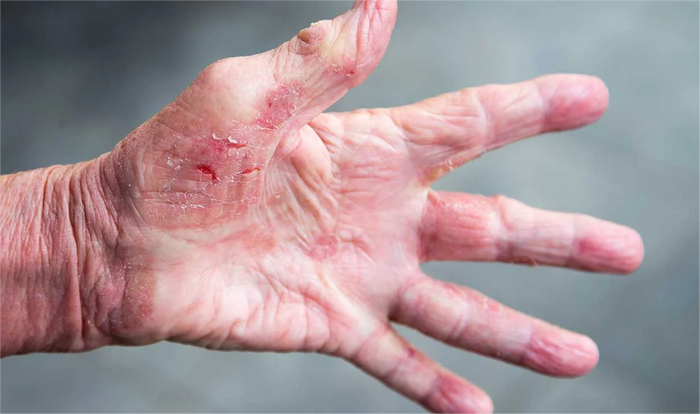Eczema, a common skin condition characterized by red, inflamed, and itchy patches, can be a source of discomfort and frustration for those affected. When eczema flares up, the affected skin can become raw and sensitive, making it crucial to apply gentle and effective remedies. While there is no one-size-fits-all solution for managing eczema, natural remedies can often provide relief without the risk of harsh chemicals or side effects. In this article, we’ll explore some of the best natural treatments to soothe and heal raw eczema.
Understanding Eczema
Before diving into treatments, it’s important to understand the nature of eczema. This condition is often linked to genetics and triggers that can vary from person to person. Common triggers include stress, allergens, weather changes, certain foods, and irritating fabrics or chemicals. Eczema can manifest differently in individuals, but the key symptoms typically include dry, itchy, and inflamed skin. The goal of treatment is to alleviate symptoms, reduce inflammation, and promote healing.
Natural Remedies for Raw Eczema
1. Moisturizers Keeping the skin well-hydrated is essential for managing eczema. Look for natural moisturizers that are free from fragrances, dyes, and other potential irritants. Opt for creams or ointments that contain soothing ingredients like:
- Shea Butter: Known for its emollient properties, shea butter helps lock in moisture and reduces inflammation.
- Coconut Oil: This natural oil is rich in fatty acids that can repair the skin barrier and ease itching.
- Calendula: Derived from marigold flowers, calendula has anti-inflammatory properties and promotes skin healing.
Apply moisturizer liberally after bathing to help seal in moisture and prevent dryness.
2. Oatmeal Baths Oatmeal is a gentle and effective remedy for soothing inflamed skin. Colloidal oatmeal, finely ground oats that dissolve in water, can be added to warm baths to relieve itching and soften the skin. The soothing properties of oatmeal help calm irritated skin without stripping it of its natural oils.To prepare an oatmeal bath:
- Grind plain, unflavored oats into a fine powder.
- Add a cup or two of oatmeal powder to a warm bath.
- Soak for 15-20 minutes, then gently pat the skin dry.
3. Cold Compresses Cold compresses can provide quick relief from itching and inflammation associated with raw eczema. Use a clean cloth soaked in cold water or apply an ice pack wrapped in a thin towel to the affected areas. Cold temperatures help numb the skin and reduce swelling, offering temporary relief from discomfort.
4. Aloe VeraAloe vera is well-known for its cooling and moisturizing properties, making it an excellent natural remedy for eczema. The gel from the aloe vera plant can be applied directly to raw, inflamed patches to soothe irritation and promote healing. Look for pure aloe vera gel or extract without added fragrances or preservatives.
5. HoneyRaw honey possesses antibacterial and anti-inflammatory properties that can benefit eczema-prone skin. Apply a thin layer of raw honey to affected areas and let it sit for 20-30 minutes before rinsing off with lukewarm water. Regular use of honey can help moisturize the skin and reduce the risk of infection.
6. Evening Primrose Oil Evening primrose oil, rich in gamma-linolenic acid (GLA), is often used to alleviate eczema symptoms. GLA is an essential fatty acid that supports skin health and reduces inflammation. You can take evening primrose oil orally as a supplement or apply it topically to affected areas.
7. Probiotics Probiotics, often associated with gut health, may also benefit eczema sufferers. These beneficial bacteria can help regulate the immune system and reduce inflammation. Consuming probiotic-rich foods like yogurt, kefir, or sauerkraut, or taking probiotic supplements, may help manage eczema symptoms over time.
8. Avoiding Triggers Alongside natural remedies, it’s crucial to identify and avoid triggers that exacerbate eczema symptoms. Keep a diary to track flare-ups and note any patterns related to food, stress, environmental factors, or skincare products. By minimizing exposure to triggers, you can better manage eczema and prevent raw, inflamed skin.
Incorporating these natural remedies into a comprehensive skincare routine can provide much-needed relief for raw eczema. However, it’s important to consult with a dermatologist or healthcare provider before trying new treatments, especially if you have severe or persistent eczema. They can offer personalized advice and recommend suitable products or therapies based on your specific needs.
Conclusion
In conclusion, managing raw eczema requires a holistic approach that focuses on gentle skincare, identifying triggers, and using natural remedies to soothe inflammation and promote healing. By adopting these strategies and prioritizing skin health, individuals with eczema can find relief and improve their overall quality of life.
Related Topics:

























